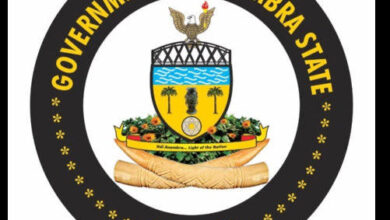Explainer: All You Need to Know about Africa’s Youngest Serving Leaders

By Sultan Usman
Following an unprecedented victory at the presidential election on Sunday, March 24, the Constitutional Council, an apex court in Senegal, announced Bassirou Diomaye Faye, an opposition candidate, as the winner of the Senegalese presidential poll.
Released just some days from prison, the 44-year-old is set to lead the mantle of leadership of the country to achieve ‘mouth-watering feats’ in the political history of the nation.
Amidst this, FactCheckAfrica observed that there are ongoing talks about young people emerging in Africa as presidents — a situation known to be challenging the age-long gerontocracy troubling the continent.
To uphold clear facts and inform our readers about a discourse of public interest like this, this Researcher highlights some countries with young persons — at one time or another — in Africa as their rulers/presidents.
Burkina Faso
After Paul-Henri Sandaogo Damiba, the past president of Burkina Faso was overthrown in a coup d’état on September 30, 2022, Ibrahim Traoré, a military officer, assumed power.
Checks show that the ruler enlisted in the Burkina Faso army in 2009 after completing his training at the Georges-Namoano Military Academy.
Chad
Mahamat Déby, the president of Chad, is a four-star general in the military service. After the death of his father, the late President Idriss Déby who died on April 20, 2021, during a visit to front-line soldiers battling a rebel group, he took over as president of the Transitional Military Council.
Before this, he was the military’s second-in-command during the Chadian Intervention in Northern Mali. Born on April 4, 1984, his current age is 39 years old.
Mali
Born in 1983, Assimi Goita is the son of an officer of the Malian Armed Forces. Goita served as a colonel in the Autonomous Special Forces Battalion and headed the Malian Special Forces having received training from the US, France and Germany.
He served as the leader of the National Committee for the Salvation of the People, which overthrew Ibrahim Boubacar Keita in 2020.
Therefore, on the 28th of May 2021, the Constitutional Court of Mali declared Goita as the new President of the country.
Guinea
Born in March 1980, Colonel Mamady Doumbouya, assumed the rulership of Guinea following the ousting of the country’s first democratically elected president, Alpha Conde, in September 2021.
He is sworn in as head of Guinea’s junta for a transitional period which aims to carry out comprehensive reforms in the country.
Ethiopia
Born on 15 August 1976, Ahmed Abiy is a veteran politician from Ethiopia who has led the famous Prosperity Party since 2019 and has served as Ethiopia’s third prime minister since 2018.
He is the first person of Oromo heritage to be chairman of the Ethiopian People’s Revolutionary Democratic Front (EPRDF), which ruled Ethiopia for more than two decades.
Abiy is a top member of the Oromo People’s Democratic Party.
Senegal
Born on the 25th of March 1980, Bassirou Faye is the new President-elect in Senegal. Reports show that he was apprehended and placed under police custody for charges including “spreading false news, contempt of court and defamation of a constituted body” following a social media post he made.
Founded in January 2014 by Ousmane Sonko, the African Patriots of Senegal for Works, Ethics and Fraternity (PASTEF) endorsed Faye last year as its candidate for the recently-conducted presidential election.
Faye won the 2024 Senegalese presidential election, making him another young leader in Africa.
Conclusion
In this article, the findings are written and published, as part of our Media Literacy Project, to contribute to the recent conversation about young leaders in Africa among netizens. FactCheckAfrica can confirm that there are young persons, either through military intervention or democratic process, who are emerging as rulers within the African continent.



